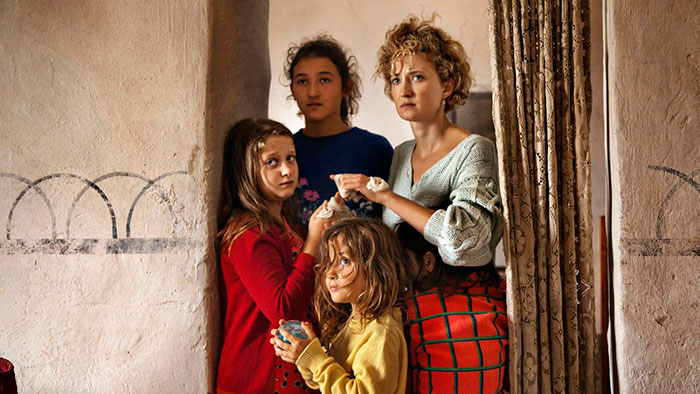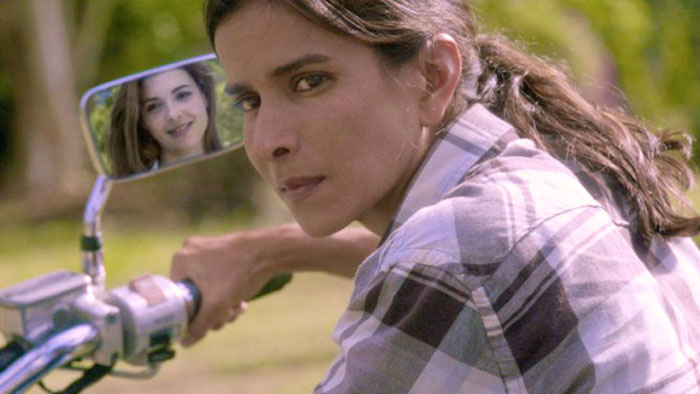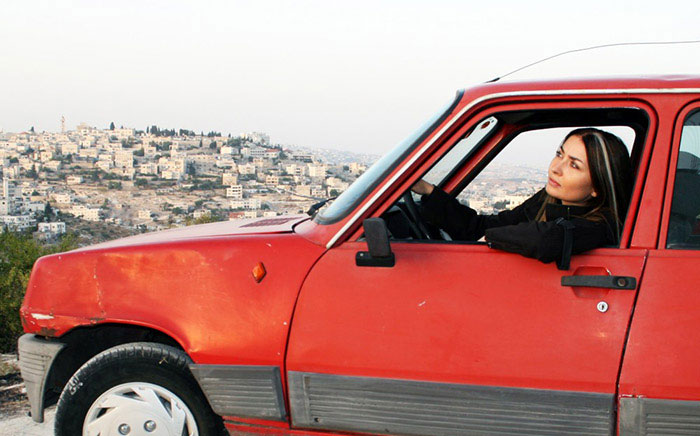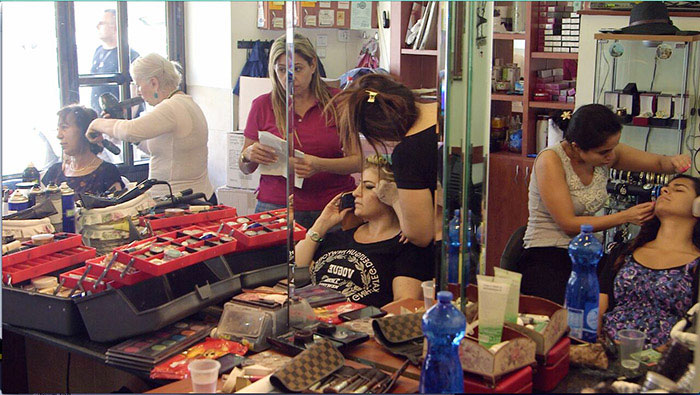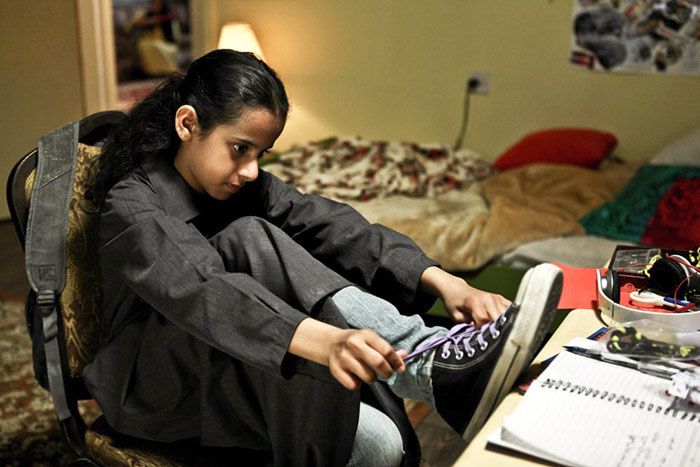Bringing the World to Vermont: |
||
| by Cynthia Close | ||
Vermont has a well-established film culture born in its fertile soil, nurtured by its progressive politics, and grown through community support. Two impressive examples of the long-term survival of film and expanded vision of film programs in the state are the Brattleboro Women’s Film Festival, celebrating its 25th anniversary this March, and the newer Global Roots Program, founded in 2013 by the Vermont International Film Foundation. |
||
The Wonders, a coming-of-age story set in rural Italy, centers on a family of beekeepers. photo: courtesy Brattleboro Women’s Film Festival |
||
|
Back in 1991, the Women’s Crisis Center (now known as the Women’s Freedom Center) in Brattleboro launched the first festival, screening films made by women filmmakers about issues that most concern women. The center was originally founded during the great wave of feminism that swept the country in the late 1960s and early ’70s. The center’s philosophy, then and now, states: “We believe the roots of violence against women lie in the patriarchal structure of societies—social systems constructed in ways that maintain male power and privilege over women and condone violence as a method of control. . . . Our goal is to end men’s violence against women and the inequitable institution of patriarchy that gives rise to multiple forms and expressions of abuse.” The work of the center takes a multipronged approach. It has a 24/7 hotline for women to help in the moment of extreme crisis, as well as providing housing and long-term support for women and children who are seeking a safe haven from violence and abuse. Although the center’s geographical focus is Windham County and Southern Windsor County in Vermont, its message of advocacy for women’s empowerment and its desire to effect social change on a more global level made the founding of the Women’s Film Festival a logical development for the organization. The 2016 Women’s Film Festival takes place from March 11 to 20. All screenings are held at the New England Youth Theater in Brattleboro. This year’s impressive program also serves as a Women’s Freedom Center fundraiser and features 37 films, by and about women. The screenings of 16 documentaries, 7 feature films, and 14 shorts from around the world begins on Friday, March 11, at 7 p.m., with a gala reception of champagne and hors d’oeuvres. The opening night film, Mavis!, is a celebration of the amazing life of an extraordinary singer, Mavis Staples. The screening immediately follows the reception. This documentary film by Jessica Edwards is an ideal pick for opening night as it encompasses the civil rights movement as seen through the life and music of an inspirational woman, who, at 75 years old, is still alive and well. For the past 15 years, Vickie Sterling, the WFC’s executive director, has also been the film festival organizer. The films are all recent, most of them having been released in 2015. There are an impressive number of foreign films, starting with the 14-minute short, Cailleach, from Scotland, and including films from Norway, Romania, India, Pakistan, Finland, Cuba, Switzerland, Poland, Japan, Germany, Venezuela, Turkey, France, Brazil, Russia, Ukraine, South Africa, and Israel—a smorgasbord, of cultural experiences that should appeal to all genders. And as Vickie Sterling emphasized, “These are films that for the most part, will never be available on Netflix, so your only opportunity to see them will be at our festival.”
|
||
Liz in September, a Venezuelan film, chronicles the last months of a young gay woman diagnosed with terminal cancer. |
||
|
Originally the festival was a board-created event run by a volunteer committee. The intention was to raise awareness of women’s issues in the mainstream population and to provide a vehicle for women filmmakers to have their work shown. In spite of the fact that we are seeing more women in directorial roles in the feature film industry, their percentages are still abysmal when stacked up against the overwhelming numbers of theatrically released films made by men. This film festival may be the one chance for certain films to be screened in front of a live audience. Sterling has the primary curatorial responsibility for the festival. She scouts year-round for interesting films to invite to the festival. Her message is that these films are of interest to everyone, not just women, and they will challenge your preconceptions as well as entertain and inform. In an attempt to reach a younger audience, last year’s festival included a matinee of five or six short films targeted to a middle school population. This year’s program is not preachy nor depressing, which some folks might presume when the sponsor is also an advocate for women’s rights. The schedule includes Can I Stay?, a delightful three-and-a-half minute animated short film, and the hilarious, feature-length, Romanian documentary Chuck Norris vs. Communism. The New England Youth Theater seats 125, and if the weather cooperates, there is a good chance that many of the screenings will be sold out. Most of the films have trailers posted on the festival website. Check it out and join the 25th-anniversary celebration of the 2016 Women’s Film Festival in Brattleboro.
|
||
Can I Stay? is an American-made heartwarming CGI animated short about a homeless girl. |
||
The Global Roots Program is a relatively recent initiative of the Vermont International Film Foundation (VTIFF). The VTIFF began over 30 years ago as the Vermont International Film Festival, held annually at the end of October. The first film festival took place in 1985 at Marlboro College in southern Vermont and attracted about 100 people. Today, the festival is based in Burlington, with showcases, a touring festival screened at various venues across the state, and an education program in the schools, reaching audiences numbering in the thousands throughout the year. In 2012, Orly Yadin became festival director. An innovator, Orly has been an influential force in the revitalization of the festival and in generally promoting film. After assuming her position, it soon became apparent to Orly and to her staff and the board of directors that there is strength in numbers and that the various film initiatives and interest groups in Burlington and, ultimately, in the state could best be served by joining forces under one umbrella organization. As a result, the Vermont International Film Foundation was formed. The annual film festival is still VTIFF’s most ambitious program, but in February 2014, the Burlington Film Society, founded in 2012 by Barry Snyder and Eric Ford as a focus for the exhibition of and advocacy for cinema as an art form, became a program of the foundation. Along with the first Global Roots initiative in 2013, the foundation has become a dynamic engine for the support of film culture in the state of Vermont. |
||
A scene from Open Bethlehem, Palestinian filmmaker Leila Sansour’s 2004 chronicle of her hometown, Bethlehem. photo: courtesy VTIFF |
||
|
Centered in Burlington, Vermont’s largest city, and home to the state’s most diverse population, it was a logical step for VTIFF to see internationally produced films as a vehicle to reach out and engage immigrant and “new American” communities. The screenings were all free, to make them accessible, and held monthly from early spring to September. In the first two years of the program, the films were licensed as a package from the Global Lens film series, a mechanism to curate foreign language films and distribute them in a package deal to educational institutions and libraries throughout the United States. The rental fees were costly, so a partnership with the Fletcher Free Library made the program financially feasible, allowing VTIFF to continue offering the screenings at no cost.
|
||
|
A goal of the Global Roots Program is to use the films to stimulate dialogue. For that to occur, a speaker who could lead a discussion following each screening is essential. On April 14, 2013, Burlington mayor Miro Weinberger was the speaker for the inaugural film Parade, a Serbo-Croatian political farce by director Srdjan Dragjevic about a group of gay activists in Belgrade. The Highway, a Nepalese film along with films from Iraq, China, Bosnia-Herzegovina, and Rwanda, rounded out the first season. Jean Luc Dushime, an aspiring filmmaker from Rwanda who had immigrated to Vermont, was the speaker for the last film in that series, titled Grey Matter, a trenchant drama about a brother and sister dealing with the aftermath of genocide. Although these films occasionally dealt with the harsh realities of the political and war-torn worlds this potential audience escaped, the films were first and foremost entertaining and good storytelling. All cultures have experienced connection through stories, and film is one of the best mediums to engage and transcend differences. The challenge has been to overcome resistance from the target populations who often do not have an established film culture in their native lands. Movie-going, along with the free expression of ideas that is essential in any cultural exchange program, is not the norm among most immigrant communities. The local Bhutanese community was the most responsive to outreach efforts. However, it still took concerted attempts to find creative ways to tap into the various immigrant communities that the program set out to engage.
In Women in Sink, a friendship develops between an Arab woman and a Jewish woman at a small hair salon in Haifa. photo: courtesy VTIFF In 2015, the Global Roots Program moved to Winooski. Screenings were hosted by the Community College of Vermont (CCV) and the O’Brien Community Center. The diverse CCV student body was a receptive audience, and many students attended the program. Attracting a younger audience by tapping into the bilingual first-generation children of immigrant families is an excellent way to connect with a non-English-speaking community. Always looking for new ways to improve their public programming, Yadin and her team are planning to expand the 2016 “Global Roots brand” by putting on more programs in various locations both in Burlington and beyond. In January, they partnered with Middlebury College and brought three international films to the college’s Dana Auditorium. These included The Club, in Spanish with English subtitles; The Look of Silence, the companion film to The Act of Killing, Joshua Oppenheimer's award-winning documentary on the 1965 Indonesian genocide; and The Assassin, by legendary Taiwanese director Hou Hsiao-hsien. Starting in February 2016, the Global Roots Program comes to Contois Auditorium in Burlington City Hall. A three-day festival of films and speakers from Israel and Palestine is planned, focusing on the Middle East and issues of vital importance to the global community. The program is made possible by a grant from the Sisters of Mercy Initiative and cosponsored by the Burlington-Bethlehem-Arad Sister City Program whose mission is to promote understanding and friendship among the people of Israel, Palestine, and the United States. As of this writing, details of the program had not been finalized.
In Wadjda, the first full-length feature filmed in Saudi Arabia, a rebellious Saudi girl enters a Koran recitation Looking ahead, Yadin reminded me that they were “not called the Vermont International Film Foundation for nothing.” The demographics of Vermont are changing: perhaps not as swiftly as in other states, but when 33 percent of the student population at Burlington High School is foreign born, that represents a significant shift in our previously overwhelmingly native-born population. The Global Roots initiative along with the other programs of VTIFF not only acknowledge this shift but also “bring the world” to Vermont, making it more visible and something to celebrate, rather than fear.
|
||
|
||
|
Cynthia Close is a contributing editor for Documentary Magazine, art editor for the literary journal Mud Season Review, and an advisor to the Vermont International Film Festival. She lives in Burlington, Vermont, with her doggie, Ethel.
|
|
